- Home
- Anne McCaffrey
Second Wave Page 22
Second Wave Read online
Page 22
Maati sent her a series of images of how they found Ariin, or rather, how Ariin found them, followed by other, less-distinct images of the horrific way Elviiz had been injured.
While Khorii digested this, her twin watched her face carefully. So did Jaya. “I know I’m missing something here, Khorii. What’s going on?”
“Family issues,” Khorii said. Jaya’s lids came down to shutter her eyes, and she pretended to be very interested in the instrument console. She no longer had family to cause problems or to give her joy or support. Khorii did not know what she should do first, but finally said to her look-alike, “I am very surprised to learn that I have a sister, Ariin.”
“I was surprised, too, Khorii, but very glad. I have heard so many wonderful things about you. I will try to live up to your example and be of some small assistance in your great work.” She inclined her head in what almost amounted to a bow.
“This is my friend Jaya,” Khorii told her quickly. Hearing praise about herself from someone who looked so similar was extremely unsettling, and she wanted to get away from the subject of her “great work” as quickly as possible.
Captain Bates, Hap, and Mikaaye entered and prepared to strap themselves in for takeoff. “These are my other friends, our teacher Captain Asha Bates and Hap Hellstrom. You probably know Mikaaye already?”
Both Mikaaye and Ariin shook their heads, their manes ruffling slightly as they did so.
Sesseli entered last, clutching Khiindi. The cat looked at the com screen as if he had seen a larger carnivore and bolted, scratching a track across Sesseli’s forearm as he ran to hide beneath a storage bench. Leave it to a cat to capture all of the attention in the room, Khorii thought. Ariin barely acknowledged Sesseli, but had watched Khiindi’s flight intently. Surely she had seen cats before? Since Nadhari Kando became regent on Makahomia, litters of temple kittens had become ceremonial gifts between her world and Vhiliinyar. Quite a number of Linyaari pavilions hosted Temple Cats these days.
Sesseli, holding her bleeding arm, came to Khorii and held her injured limb up to the Linyaari’s horn. Khorii absently rubbed her horn against the wound as a good cat might rub his head against a beloved friend.
“And this is Sesseli,” Khorii concluded.
Sesseli scrutinized the screen, then looked back at Khorii.
“Maati says that Ariin and I are twins,” Khorii told Sesseli.
“Hi, Ariin,” the little girl said with a giggle. “Now I don’t know how I’ll tell you apart.”
Jaya asked, “Why are you waiting for the Balakiire? When is it due?”
“Soon,” Maati told her. “We need help towing a Federation tanker with a cargo of freshwater safely to the surface of Rushima. Then we need an extra crew to fly the ship to LoiLoiKua, where we can fill it with water from there to evacuate the sea people.”
“Perhaps we can help you with that,” Jaya said. “The Mana is larger and more suited to towing than the Balakiire. In the past we sometimes hauled strings of cargo barges for outlying ports.”
“We still need to rendezvous with the Balakiire, because of Elviiz,” Maati said. “Oops, forgot she could not hear us before, Khorii.”
“The ghost-beings attacked Elviiz shortly after we left, destroying many of his inorganic parts,” Khorii told her shipmates.
“I knew we shouldn’t have left him,” Hap said. “Shoot, I liked him, too. I thought it was safe making friends with a droid, but now he’s bought it, too.”
“Oh no, Elviiz is alive,” Maati told him. “Simply…somewhat diminished. The Balakiire is returning with him to Vhiliinyar, but they wish to pick up Khorii to accompany him. If she can determine that the strain of the plague affecting her parents and the Condor’s crew has vanished like the rest of it, then Elviiz’s father/creator Maak will be able to repair him more easily.”
“And I can finally meet the rest of my family in person,” Ariin said. “So I am coming, too.”
“So we’re going to have a basic switcheroo, is that it?” Captain Bates asked. “We’ll help you off-load the water and rescue the LoiLoiKuans with the tanker, and sometime in the course of all that, Khorii and Ariin will transfer to the Balakiire to return to their homeworld. Right?”
“But we also have another mission,” Jaya said. “Captain Becker in particular asked us to perform it.”
Khorii said, “Even Uncle Joh would not value his cargo above Elviiz’s and my family’s well-being. Besides, we do not have a specific function, simply to check on the status of his cargo, and the Balakiire can do that as well as the Mana. The Balakiire is also programmed with Uncle Joh’s universal shortcuts, so locating the cargo will pose no particular difficulty.”
“Brilliant,” Jaya said, “but whatever we’re going to do, we should do it quickly. Doesn’t the attack on Elviiz give anyone else a clue as to what has been causing all of the accidents and deterioration here?”
“Do you mean that these ghosts are absorbing—perhaps even feeding on—inorganic matter?” Khorii asked. That much was obvious. What was less evident was any other motive or methodology the entities might use in selecting their targets, or how they came to exist in the first place.
“We should do a final check, then lift off before they decide to chow down on us,” said Hap.
Chapter 27
The settlers of Rushima were delighted to receive their overdue shipment of freshwater. Jaya used the tractor beam aboard the Mana effortlessly to take control of the tanker and guide it to the landing field, where it occupied almost all of the space provided.
Everyone from Elder Plimsoll to Moonmay was waiting with hoses, pumps, wrenches, and buckets.
“Buckets?” Hap asked. “That tank holds the capacity of a small sea. That’s a lot of bailing you’re looking at, people.”
“Marsden is working as hard as he can repairing the pumps and pipes of the irrigation system, but it’s taking longer than we thought,” Elder Bawb said.
“There may be similar items aboard the tanker,” Khorii suggested. She strode back toward the larger ship in time to see Thariinye emerge and the Nheifaarir settling in to land in a nearby field since the docking bay was full.
“Never fear, youngling, I read the problem in your thoughts and investigated the ship’s resources. It appears that all the people will need is a reservoir to hold the water. There are pumps and tubing attached to the tank, no doubt ready for the transfer,” Thariinye said to Khorii.
Khorii beckoned the elders over, and they entered the ship with Thariinye. Meanwhile, she trotted over to meet her new sister.
Maati waved at her and hastened, Ariin trailing her, to meet Khorii. Khorii hugged her aunt, then turned to her own mirror image.
Up close, she saw that although Ariin’s features, form, and, of course, her coloring were identical to hers, she had an air of reserve about her. She met Khorii’s embrace a bit hesitantly, though Khorii felt the other girl relax as they separated.
“Please don’t let me keep you from your work,” Ariin said aloud.
“There are many others who can do the same work better,” Khorii told her. “They understand that I wish to get to know my sister! Are you thought-talking yet? It is so much easier than verbal speech, especially with all that noise.”
On the landing pad, people swarmed over the tanker like busy ants. A new hatch had been opened in the tanker’s hull. A very loud mechanism extruded compressed coils of flexible pipe, thick as the torso of an adult male. Thariinye and the others pulled coil after coil away from the ship, stretching it as it was released. In pairs stationed every few feet, people supported the hose, hauling it off the landing strip, across an adjacent field, and up the hill that cupped their reservoir in its center. Because the volume of water carried by the tanker was expected to be so great and the weather had been unusually dry, the irrigation ditches had been opened to accommodate the runoff.
As soon as the grinding noise of the hose ended, a rattle and wheeze heralded the start of the pumps. Almost immedia
tely, they stopped again with a shudder and an alarming bang. Scar, Marsden, Hap, and Thariinye hastened to repair the damaged equipment. With a flare of welding torches and other mysterious mechanical rites, along with the two men, one boy, and one Linyaari all working on it, the pump was soon mended. With a quite loud hiss-clump, hiss-clump noise, it began pushing water in rationed portions at a steady rate through the pipe, which fattened like a huge snake gorging after a long fast.
The twin girls sat on the banked soil and stones rimming the landing field. The air was clear today, the sky bright, and the sunshine warm, bringing out a sweet scent from the grasses and wildflowers. Khorii and Mikaaye hadn’t rid all of the land of its aqua overgrowth, but they had done so to the fields near the landing strip so that they could graze.
Once the pumps started, the noise was less distracting, and Ariin waited until then to reply. “Yes, I can send and read thoughts, but it is very new to me, and I do not always like to do it. Where, or perhaps I should say when, I lived before, people were always trying to learn everything about me. They could read thoughts, too, although for a long time I could not. So I felt that nothing of myself was only mine.”
“I think a lot of us feel that way when we’re young, before our own telepathy develops. I suppose it is for our own protection. It lets our elders know if we are planning to get into danger or trouble, or to find us if we are. And it keeps us from reading their thoughts, which contain what my friend Jaya would say is ‘too much information.’”
Her sister stiffened and stood up. “I’m hungry. Shall we graze?”
Khorii looked up in alarm. “I offended you. I’m sorry. I just thought…”
“I know what you thought, sister, but unlike you, I did not grow up with loving parents who cared if I got into trouble or danger. I grew up in a laboratory with beings that considered themselves not only older and wiser but more sentient than I was, who monitored my every move, word and, yes, thought. The only time I escaped their scrutiny was when I visited the Others.”
“Others?” Khorii asked and received an image of Ancestors—in fact, these creatures were not the same ones she knew, so they must have been ancestors of the Ancestors. “I see. What I do not understand is how you came to be there. If we are twins, we should have been born at the same time in the same place and of course, to the same mother. No one ever told me I had a sister, much less a twin, though I always wanted one.”
“Why? You had your parents and all of your relatives who love you around you and everything else you wanted.”
“Parents aren’t the same thing, sometimes especially ours. I had Elviiz, of course, but he is not exactly a peer. He seems to be my age, but with his android attributes and vast intelligence and data banks, he is too much my teacher and guardian to be a real friend.”
“If he teaches you and protects you, is that not friendship?” Ariin asked. Khorii had put her foot in it again complaining about Elviiz, because behind Ariin’s question was real puzzlement. She did not even know what a friend was.
“Yes, of course he is my friend, but it is usually more in the same way that the Others were your friends. Friends who are more similar can do things for each other. I cannot do anything for Elviiz very often because he does everything so well himself.”
“I see. Well, we are sisters so we must be friends, too. I do not know what I can do for you, but I do have a gift.” She stopped grazing long enough to reach into the pocket of her shipsuit. She pulled out something that sparkled in the sunlight and tossed it to Khorii, who caught it in midair.
“Oooh, pretty!” she said, holding up the small piece of jewelry so that prisms of light shot out of the little stones and danced across her face and the grass around her. “This is as beautiful as some of the things in the mansion on Dinero Grande. I really wanted to take some of them with me, but, of course, they belonged to others.”
Ariin was quiet. “You wear it on your ear,” she said finally. “People wear that sort of thing a lot where I was.”
“Thank you very much. I’m afraid I do not have a gift for you.” She wondered if Captain Bates might make a beaded bracelet for Ariin similar to Khorii’s. Since the bracelet was a gift from a friend, she did not feel it was right to give hers to her sister, but one like it would be nice—then they’d have something to mark their kinship—other than the striking physical resemblance, of course.
“It will be gift enough for me if you are able to lift the quarantine on our parents so I may greet them in person. Also, I would like to see the human ships and meet more of the human people. I have seen Captain Becker on the com screen, and I met Uncle Hafiz and Karina and their household, but I would like to meet your friends, too.”
“Of course!”
That night, with the ships in dock, Khorii suggested that people light fires around the perimeter to keep the fog at bay.
“What good is a fire going to do against a ship-eating ghost?” Elder Plimsoll asked. “If lighting fires would help, we should be guarding our own homes and businesses.”
“Never mind what happens to the ships that bring you water and people to heal your sick and clean your cropland?” Captain Bates demanded.
“What good will that do us if everything turns into ghost food?” the elder demanded.
“What have we done for you lately? Huh?” Hap demanded angrily.
Elder Bawb and Marsden had disappeared and now reappeared with armloads of kindling. They were followed by a dozen children, each carrying all of the kindling they could. Moonmay trudged behind them, pushing a wooden wheelbarrow full of wood.
“You got any special places in mind we should light these fires, Khorii?” Marsden asked.
“All around the ships,” she said. “Close enough together that a person sitting by one campfire can feel the warmth of the adjacent ones and visit with the neighboring tender.”
“That’s a lot of campfires. Going to get pretty hot,” Marsden said.
“Are you trying to protect your ships or burn them up yourself?” Plimsoll asked derisively.
“Elder, if you have any constructive suggestions, we would be happy to entertain them,” Khorii told him. “We have determined that the ghosts or whatever they are absorb inorganic material, and last night they traveled under cover of fog. If we keep the real fog at bay, at least we will be able to see our adversaries.”
“And do what? You gonna shoot ’em with your ray guns, Missy?”
“What is a ray gun?” Ariin asked Mikaaye, who shrugged.
“My people are peaceful and do not employ offensive weapons, Elder,” Khorii said. “But we will defend ourselves and so should you. It seems to me that if the ghostly beings absorb inorganic materials, they should be warded off with organic weapons—perhaps a burning brand from the fire, as wood is organic?”
“But you don’t know that, do you, young lady?” Elder Plimsoll demanded.
“No, sir. I have only a partial theory constructed from what I’ve observed. Many of you have also encountered the ghost-beings, and if anyone has more promising theories, I’d ask that you please share them.”
Even that plan was nearly foiled when the wind picked up, roaring across the flat field, scattering the kindling and making it too dangerous and difficult to maintain open campfires. Moonmay’s braids lashed her face and shoulders like whips. Everyone who wasn’t wearing shipsuits had their clothing belling and bannering around them like sails. The beaded braid in Khorii’s mane beat against her face and neck, and the rest of her mane felt as if the wind were tearing it out by the roots.
“Now what?” Plimsoll demanded, his fists on his hips like a scolding mother.
Marsden and his grandchildren disappeared as the wind came up, returning a little while later with another convoy of wooden wheelbarrows, each of which contained a fuel barrel cut in half.
Words were blown away as soon as they were spoken, but the smith and his kids set the barrels on the runway, filled them with sticks of stray kindling, and placed them a saf
e distance from the ship, but within range of each other. Then Scar arrived on his tractor, hauling a wooden trailer full of more barrel halves. When all of the fire pits were in place, Scar parked his tractor, digger, and the trailer under the fin of the tanker, between it and the campfires. “I’ve had a fair amount of repairs to make on my equipment, thanks to the not-so-dear and not-so-departed,” he said. “I checked on my ship this morning, and it looks like I’ll be needing to hitch a ride off-world with one of you.”
Each barrel was tended by four people. Two sat by the fire, huddling against the wind, keeping the flames from being extinguished. Meanwhile, two other tenders camped inside the ships, sleeping, eating, or visiting away from the whistling swoosh and rattle of the air currents whipping around the landing field.
Captain Bates fixed pot after pot of hot soup and Kava, and some of the girls and women from the town brought bread and more vegetables for the soup and for the Linyaari, who welcomed the change from what they could grow in their ’ponics gardens, though the vegetables, preserved from previous harvests, were dried and old.
It was a good party, but a bit anticlimactic, since the wind kept both fog and ghosts away.
“Maybe they’re just full from last night,” Moonmay said.
But the next morning, on the far side of the fires where the darkness eclipsed their light but their heat still warmed the tarmac, the departing guards saw that footprints, whole and partial, were indented in the heat-softened landing field, round and round and back and forth, as if patrolling the fire line, looking for a way inside. Oddly enough, the only place where no footprints appeared was in the field around the Nheifaarir.
Hap was elated. “Hah! They can’t get in. You did it, Khorii. You thought of a way to fool them,”
But Khorii shook her head grimly. “It only shows they’ve mutated from mist to mass enough to leave prints.” Indeed, this development worried her even more, for the ghosts had been dangerous enough when they were incorporeal, but who knew what destruction they might wreak if they ever got physical bodies of their own?

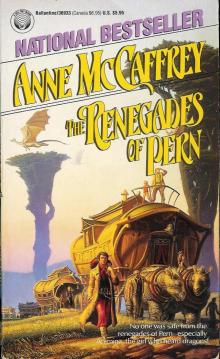 The Renegades of Pern (dragon riders of pern)
The Renegades of Pern (dragon riders of pern)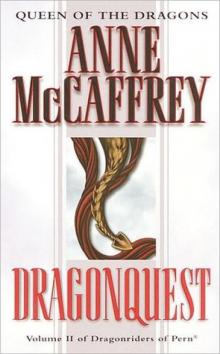 Dragonquest
Dragonquest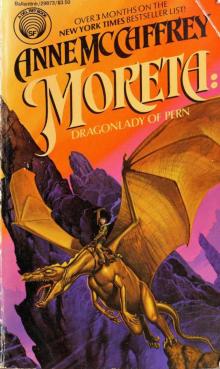 Moreta (Dragonlady of Pern)
Moreta (Dragonlady of Pern)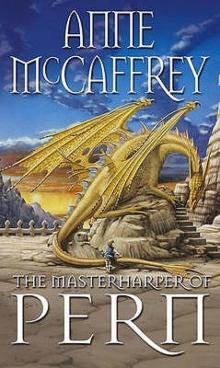 The Masterharper of Pern
The Masterharper of Pern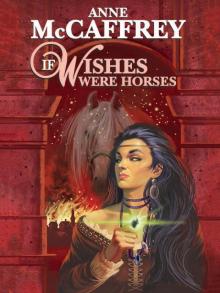 If Wishes Were Horses
If Wishes Were Horses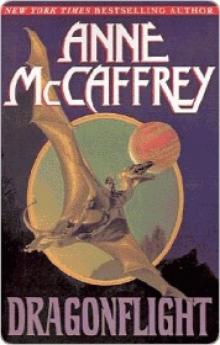 Dragonflight
Dragonflight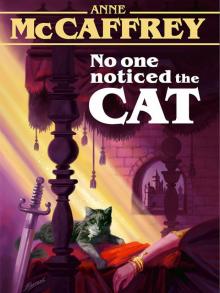 No One Noticed the Cat
No One Noticed the Cat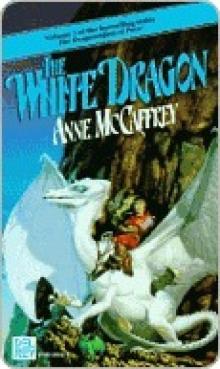 The White Dragon
The White Dragon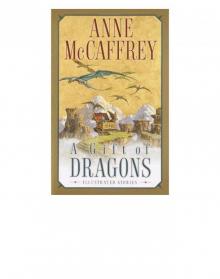 A Gift of Dragons
A Gift of Dragons Harper Hall - Dragonsong
Harper Hall - Dragonsong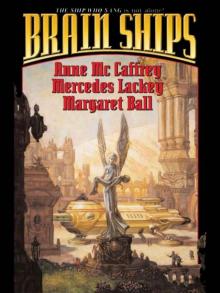 Brain Ships
Brain Ships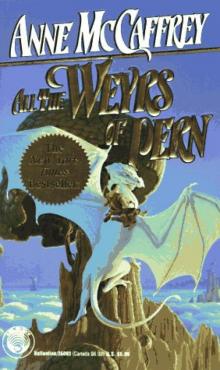 All The Weyrs of Pern
All The Weyrs of Pern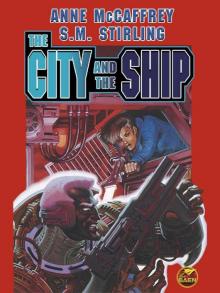 The City and the Ship
The City and the Ship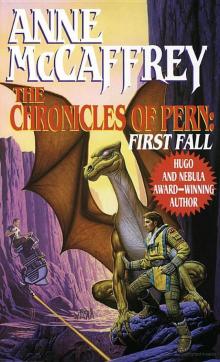 The Chronicles of Pern: First Fall
The Chronicles of Pern: First Fall Acorna’s Search
Acorna’s Search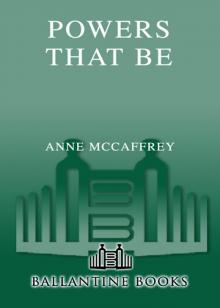 Powers That Be
Powers That Be Second Wave
Second Wave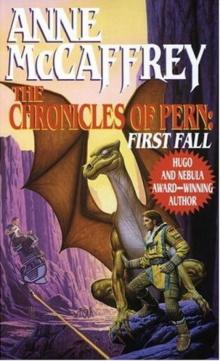 Chronicles of Pern (First Fall)
Chronicles of Pern (First Fall)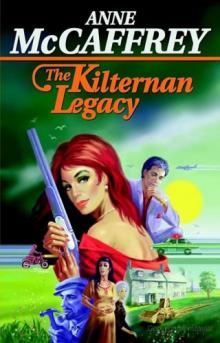 The Kilternan Legacy
The Kilternan Legacy Decision at Doona
Decision at Doona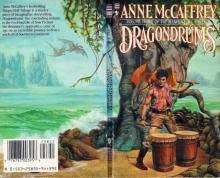 Dragondrums (dragon riders of pern)
Dragondrums (dragon riders of pern)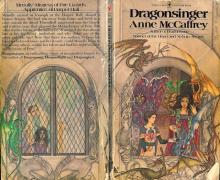 Dragonsinger (dragon riders of pern)
Dragonsinger (dragon riders of pern)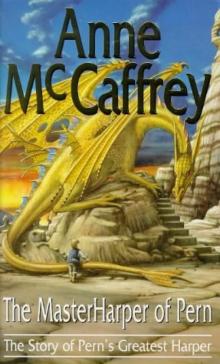 The Master Harper of Pern
The Master Harper of Pern Crystal Singer
Crystal Singer Acorna’s People
Acorna’s People Pegasus in Flight
Pegasus in Flight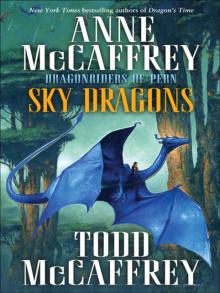 Sky Dragons Dragonriders of Pern
Sky Dragons Dragonriders of Pern Dragonriders of Pern 4 - Dragonsinger
Dragonriders of Pern 4 - Dragonsinger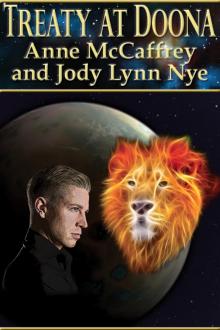 Treaty at Doona
Treaty at Doona Damia's Children
Damia's Children Stitch In Snow
Stitch In Snow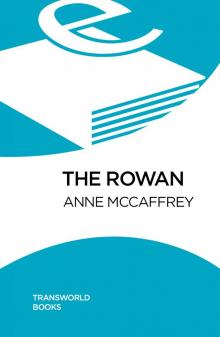 The Rowan
The Rowan Dinosaur Planet
Dinosaur Planet The Year of the Lucy
The Year of the Lucy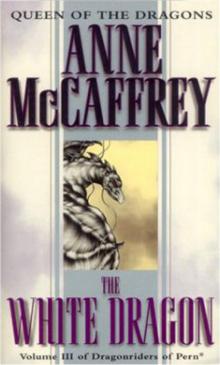 The White Dragon p-4
The White Dragon p-4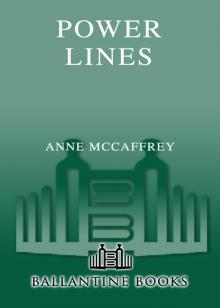 Power Lines
Power Lines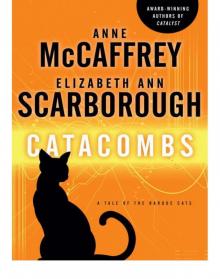 Catacombs
Catacombs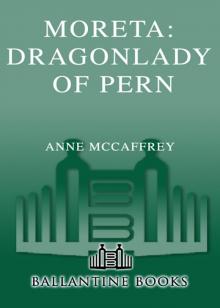 Moreta
Moreta Dragonsinger
Dragonsinger Crystal Line
Crystal Line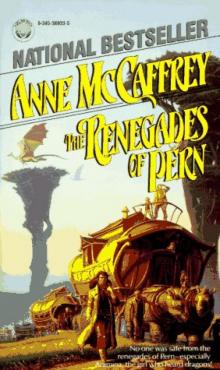 The Renegades of Pern
The Renegades of Pern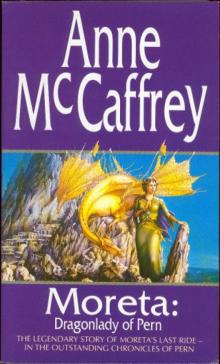 Moreta - Dragonlady of Pern p-8
Moreta - Dragonlady of Pern p-8 Deluge
Deluge The Skies of Pern
The Skies of Pern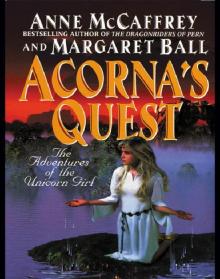 Acorna's Quest
Acorna's Quest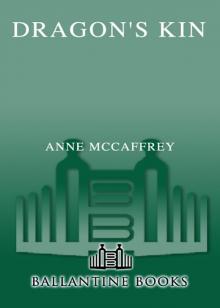 Dragon's Kin
Dragon's Kin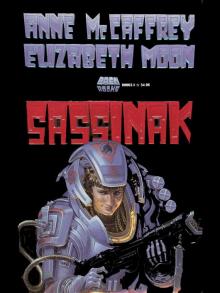 Sassinak
Sassinak![Crystal Universe - [Crystal Singer 03] - Crystal Line Read online](http://i1.bookreadfree.com/i1/03/31/crystal_universe_-_crystal_singer_03_-_crystal_line_preview.jpg) Crystal Universe - [Crystal Singer 03] - Crystal Line
Crystal Universe - [Crystal Singer 03] - Crystal Line Freedom's Landing
Freedom's Landing Acorna’s Quest
Acorna’s Quest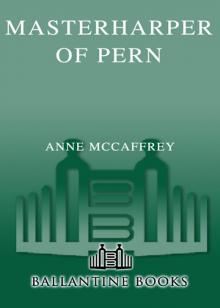 Masterharper of Pern
Masterharper of Pern Restoree
Restoree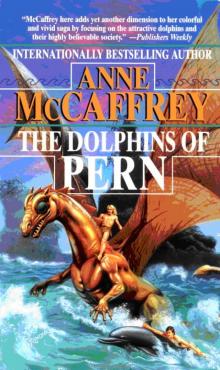 Dolphins of Pern
Dolphins of Pern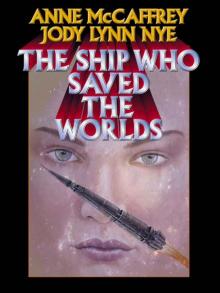 The Ship Who Saved the Worlds
The Ship Who Saved the Worlds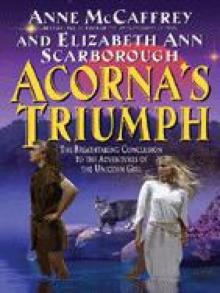 Acorna's Triumph
Acorna's Triumph Acorna's Rebels
Acorna's Rebels![[Acorna 08] - First Warning: Acorna's Children (with Elizabeth Ann Scarborough) Read online](http://i1.bookreadfree.com/i1/04/06/acorna_08_-_first_warning_acornas_children_with_elizabeth_ann_scarborough_preview.jpg) [Acorna 08] - First Warning: Acorna's Children (with Elizabeth Ann Scarborough)
[Acorna 08] - First Warning: Acorna's Children (with Elizabeth Ann Scarborough)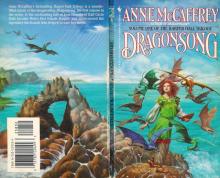 Dragonsong (dragon riders of pern)
Dragonsong (dragon riders of pern) Dragonriders of Pern 6 - Dragondrums
Dragonriders of Pern 6 - Dragondrums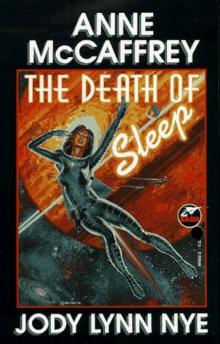 The Death of Sleep
The Death of Sleep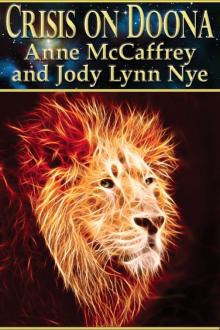 Crisis On Doona
Crisis On Doona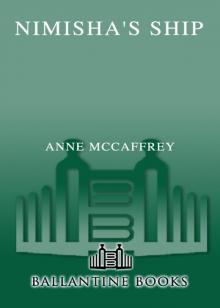 Nimisha's Ship
Nimisha's Ship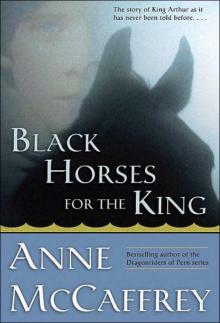 Black Horses for the King
Black Horses for the King Changelings
Changelings Freedom's Choice
Freedom's Choice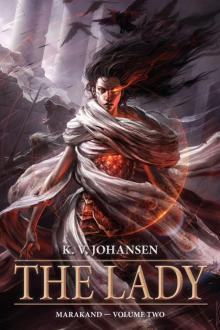 The Lady
The Lady The Coelura
The Coelura Catalyst
Catalyst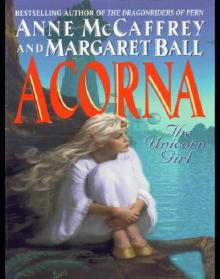 The Unicorn Girl
The Unicorn Girl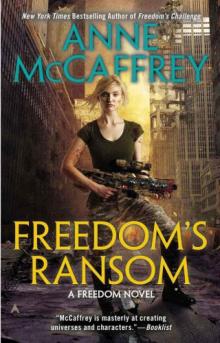 Freedom's Ransom
Freedom's Ransom Nerilka's Story
Nerilka's Story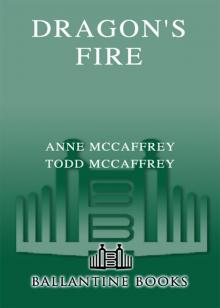 Dragon's Fire
Dragon's Fire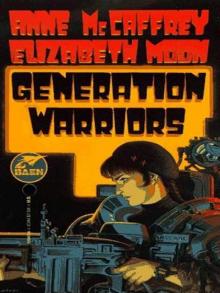 Generation Warriors
Generation Warriors Lyon's Pride
Lyon's Pride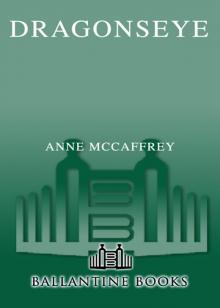 Dragonseye
Dragonseye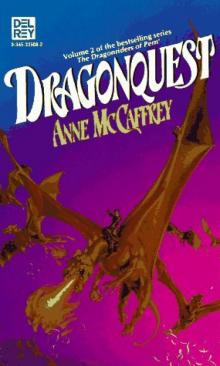 Dragon Quest
Dragon Quest Dragondrums
Dragondrums Dragonsong
Dragonsong The Mystery of Ireta
The Mystery of Ireta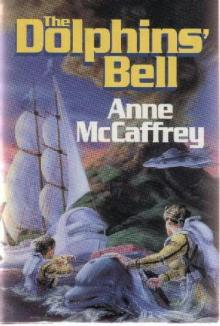 Dolphins' Bell
Dolphins' Bell To Ride Pegasus
To Ride Pegasus Power Play
Power Play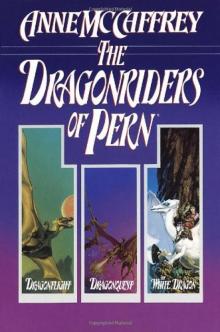 The Dragonriders of Pern
The Dragonriders of Pern An Exchange of Gifts
An Exchange of Gifts The Ship Who Sang
The Ship Who Sang Sky Dragons: Dragonriders of Pern
Sky Dragons: Dragonriders of Pern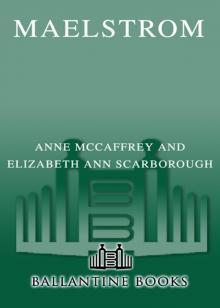 Maelstrom
Maelstrom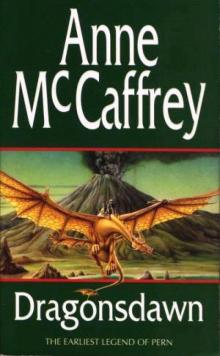 Dragons Dawn
Dragons Dawn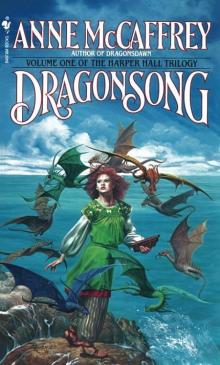 Dragon Song
Dragon Song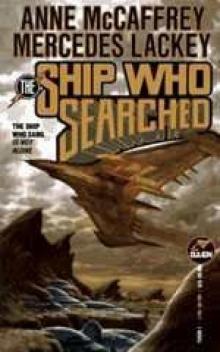 The Ship Who Searched b-3
The Ship Who Searched b-3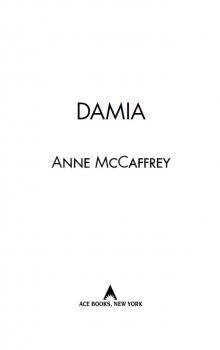 Damia
Damia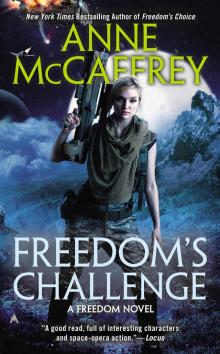 Freedom's Challenge
Freedom's Challenge